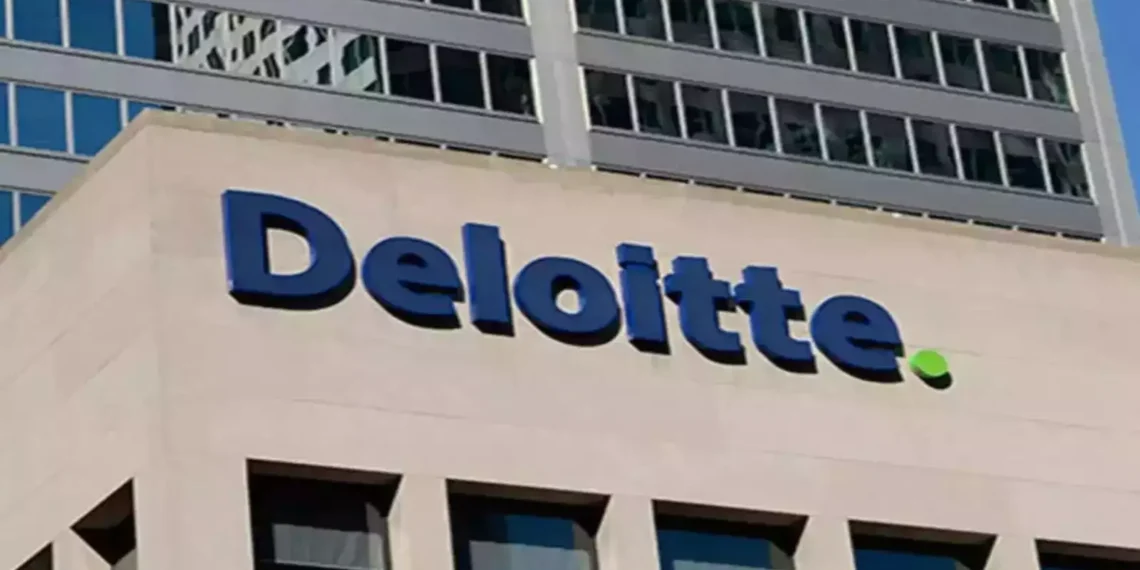The 2025 Budget’s decision to scrap certain taxes, widely regarded as nuisance levies, presents a significant risk to the government’s ability to meet its revenue target, Deloitte Ghana has disclosed in its analysis of the budget.
While these measures are seen as a relief to businesses and individuals, they could lead to revenue shortfalls that may impact the government’s fiscal plans.
Finance Minister Dr. Cassiel Ato Forson announced the removal of the Electronic Transaction Levy (E-Levy), Betting Tax, and Emissions Levy in the 2025 Budget. The elimination of these taxes, according to Deloitte, will inevitably lead to a drop in government revenue, raising concerns about how the shortfall will be compensated.
The E-Levy, for instance, was initially introduced to generate substantial revenue from digital financial transactions, while the Betting Tax targeted the growing online gaming and betting industry.
Similarly, the Emissions Levy was designed to encourage environmentally friendly practices while serving as a revenue source. With these taxes now scrapped, the government will have to rely on alternative revenue-generating measures to maintain fiscal stability.
The Need for Stakeholder Engagement
Deloitte has emphasized the importance of extensive stakeholder engagement with businesses that will be affected by these changes. The professional services firm believes that obtaining buy-in from key industry players and taxpayers will be crucial for ensuring smooth implementation of new revenue-enhancing measures. Without proper consultations, businesses may struggle to adjust, which could further hinder revenue generation efforts.
Despite concerns over revenue losses, Deloitte commended the government’s proposed revenue-enhancing measures aimed at bridging the potential fiscal gap.
However, the firm warned that the upward review of the Growth and Sustainability Levy for mining companies must be carefully managed to avoid stifling growth in the sector. The mining industry is a key contributor to Ghana’s economy, and excessive taxation could deter investment and reduce productivity.
One of the government’s key initiatives to boost revenue is the reintroduction of road tolls, which will be administered through a technology-driven collection system to improve efficiency. Deloitte acknowledged the potential benefits of using technology to enhance collection but cautioned that the move should be backed by a comprehensive cost-benefit analysis.
The government must ensure that the revenue generated from road tolls justifies the cost and resources required to implement and manage the system. If not properly assessed, the reintroduction of tolls may become another inefficient tax handle that fails to yield the desired revenue.
Expanding the Tax Net for Sustainable Revenue Growth
Beyond the specific tax measures proposed in the 2025 Budget, Deloitte has stressed the urgent need for the government to expand the tax net, particularly to cover the informal sector. Ghana’s informal sector constitutes a significant portion of the economy, yet it remains largely untaxed.
Deloitte suggests that leveraging technology, increasing tax education and awareness, and implementing reforms to simplify tax compliance will be essential for broadening the tax base. By integrating more businesses and individuals from the informal sector into the tax system, the government can generate additional revenue without overburdening existing taxpayers.
In the 2025 Budget, the government has projected a total revenue and grants target of GH¢224.9 billion, marking an increase from the GH¢186.6 billion recorded in 2024. This represents an ambitious target that relies heavily on the successful implementation of new revenue-enhancing measures.
Tax revenue is expected to contribute GH¢181.6 billion, accounting for approximately 80.7% of total projected revenue and grants. Deloitte noted that the government’s ability to achieve this target will depend on improved tax measures, which are estimated to increase revenue by the equivalent of 0.6% of Ghana’s Gross Domestic Product (GDP).
While the removal of nuisance taxes may offer relief to taxpayers and businesses, Deloitte’s analysis suggests that it could pose a significant risk to Ghana’s revenue generation efforts. The government must ensure that alternative measures effectively compensate for the lost revenue while maintaining economic growth and stability.
READ ALSO: TOR Needs $25M for Full Revival – MD



















